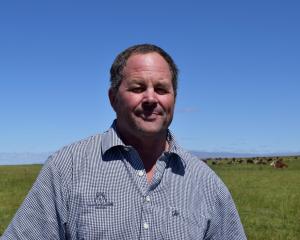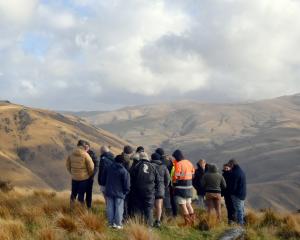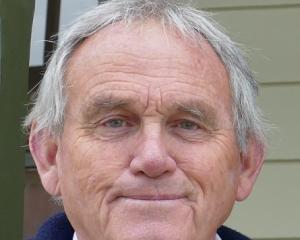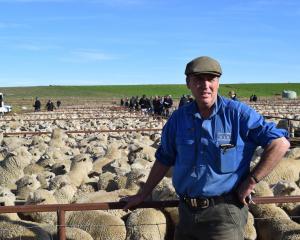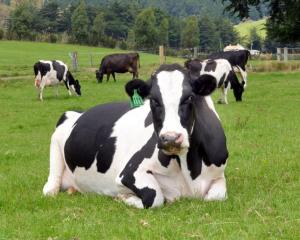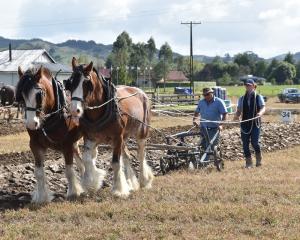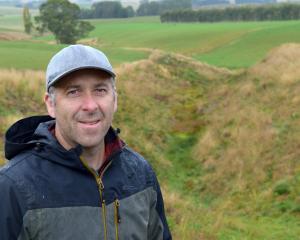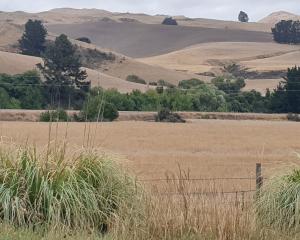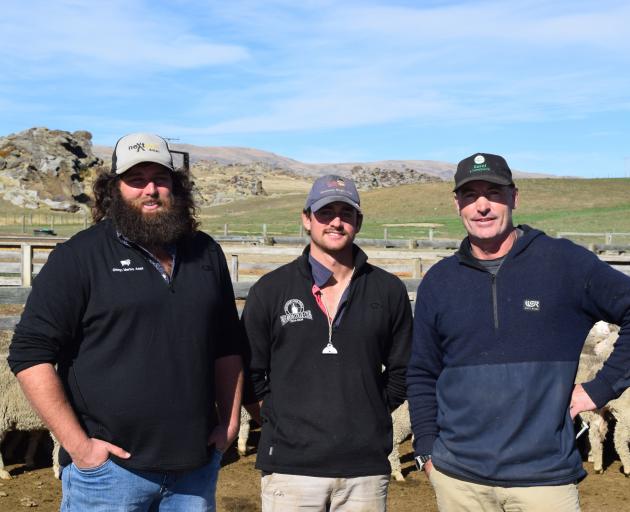
Commercial merino flocks were entered by farmers from 12 properties — Armidale, Bendigo Station, Foulden Hills, Geordie Hill, Lindis Downs Matarae, Merino Ridges, Nine Mile, Northburn Station, Olrig Station, Patearoa Station and Tulach Ard.
Mr Gibson, who owns 432ha property Foulden Hills in Middlemarch, said the rural sector was losing events, such as the recently cancelled New Zealand Agricultural Show in Christchurch.
"Some absolute staples are disappearing, which is awful."
To "change things up a bit", the association decided to run a two tooth competition and announce the winners the same night as its Child Cancer Foundation fleece competition in Wānaka last Friday.
The two tooth competition was about more than bragging rights.
"It is about learning."
The competition gave time-poor farmers a chance to visit other properties across Otago and explore different ways of farming, which could help them increase the production of their flock.
"Everyone wants to win but being part of a competition is a good way to gauge where you are at."
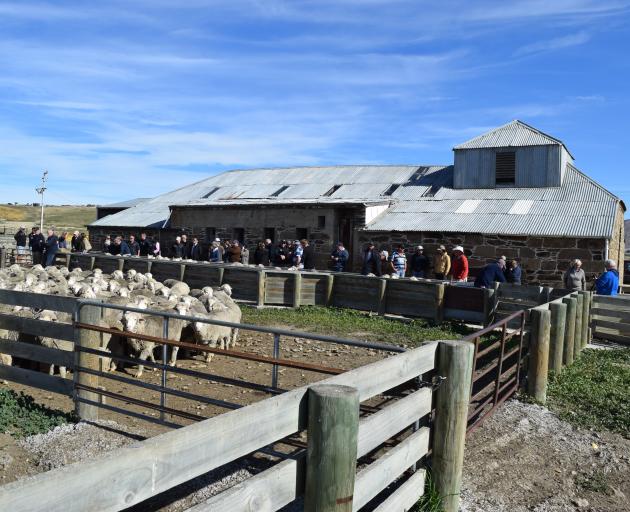
A decision was pending on when the next two tooth competition would be held —possibly every three years, so competitors had enough time to make genetic improvements in their flock, he said.
Dry conditions had been testing flocks in Otago this season, he said.
"There’s no extra tucker around at all — we’ve been feeding out in Middlemarch for a couple of months."
Patearoa Station was the third stop on the two-day tour of the competing properties.
Station owner Charlie Hore said the 7800ha sheep and beef property, rises from 400m to 1400m into the Rock and Pillar Range.
The sheep wintered on the station were 2350 merino ewes, 550 merino two tooth ewes and 2950 merino wethers, 60 rams, nearly 730 mixed age half bred ewes, 275 two tooth half bred ewes, 280 Romney ewes and two tooths and 2500 Romney hoggets.
About 180ha of the station had irrigation — 150ha spray and 30ha flood.
"This year we didn’t have much flood going because of water restrictions. It has been a tough season for most people in Otago but we are getting there."
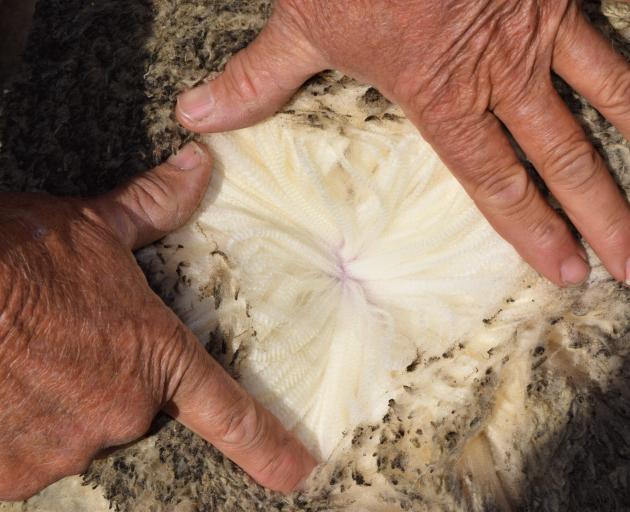
"The wethers get a bit finer — they winter up beyond those first lot of rocks and they come down in May and we give them a wee crutch and a fluff up."
The two judges of the competition gave points on conformation and constitution, wool quality and quantity, uniformity to type, freedom from fault and on judge’s discretion.
Judge Ian Stevenson, of Amberley, said what impressed him about the merino two tooth flock on Patearoa Station was its "evenness, conformation and structure".
"They are pretty hard to find fault with ... they are good productive sheep."
Mr Stevenson has judged many different breeds of sheepin shows across Australasia, including the National Ewe Hogget Competition twice.
He sold between 600 and 700 rams across five different breeds in the 1980s.
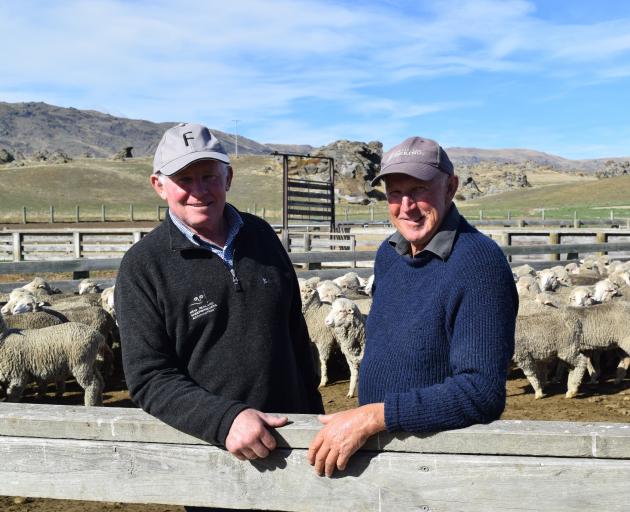
About 30,000 fine wool sheep were shorn across the three properties annually.
Providing feedback at Patearoa Station, Mr Sutherland praised the merino sheep put forward for scrutiny, calling them "big, leggy and built for the country".
"They are standing well on their feet and that’s a credit to the team."
The "super fine" wool of the Patearoa merino flock had a bit of variation but the introduction of new genetics to the flock was improving the length of the wool.
"They are going to be bale fillers."
Two Tooth results
New Zealand Wool Testing Authority Otago Merino Association Two Tooth Competition results.
1: Patearoa Station.
2: Matarae.
3: Merino Ridges.
4: Armidale.
5 People’s choice: Geordie Hill.


